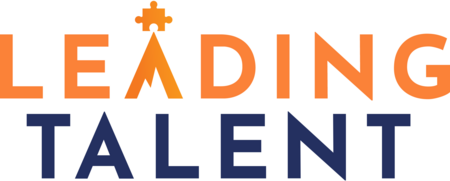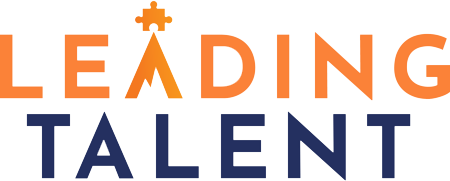April 24th 2025
Published by Tyrell Drysdale
Navigating the Future of Work: An Exploration of Partnerships and Security Regulations
Having previously discussed generative AI in the workplace and navigating the ethical considerations of AI, Tech News Thursday wishes to explore both ideas jointly. Recently, reports have surfaced suggesting that OpenAI and Meta are in exploratory talks with Reliance Industries (specifically in India), to forge new partnerships in the AI sector. Though no official confirmations have been made, this article wishes to contextualise the scope of such partnerships, examining the broader implications for privacy, and the need for adaptive policy frameworks in a rapidly digitalised world.
Exploring the scope of AI Partnerships: Contextualising this article
OpenAI and Meta are reportedly in discussions with Reliance Industries to explore potential partnerships in the AI field. Bryan Aliwalas discusses in, OpenAI and Meta Explore AI Partnership with Reliance Industries » YugaTech | Philippines Tech News & Reviews, that one key aspect of these talks is the possibility of seeing Relance Jio helping to distribute ChatGPT across India. OpenAI is also internally considering reducing the subscription fee for ChatGPT Plus to a more affordable rate. Additionally, Reliance, led by the respected Mukesh Ambani, has proposed selling OpenAI’s models to Indian enterprise clients through an API, allowing businesses to integrate advanced AI capabilities into their operations seamlessly. In light of OpenAI and Meta Platforms in Talks with Reliance to Explore Potential AI Partnerships | Entrepreneur another significant topic that this essay ought to discuss is the idea of hosting and running OpenAIs models locally to ensure that user data remains within the country, aligning with India’s focus on data protection.
Though the organisations involved have not yet publicly confirmed such deliberations, the potential partnerships could transform the development and deployment of AI in India, building access to innovative technologies while also supporting the sovereignty of data regulations.
Future Outlook on Policy Recommendation and Global Trend
In light of the aforementioned discussions, this article wishes to also take inspiration from a Charles Paul’s study (PDF) Ethical and Legal Implications of AI-Driven Surveillance: Balancing Security and Privacy in a Regulated Environment. Taking into consideration the fact that tech corporations such as OpenAI and Meta are looking into collaborating with Reliance Industries, it can be said that these lead to an increasing demand for updated legislation and rules governing how AI is utilised in the workplace. One key problem is how AI is being used to track employees’ behaviour, performance, and productivity. While this can help businesses increase productivity, it also raises serious concerns about privacy. The article “Ethical and Legal Implications of AI-Driven Surveillance” says that that robust standards are required to ensure workers’ rights are respected when AI is used. Globally, more countries are beginning to consider how to manage these technologies in a fair and transparent manner. The objective is to ensure that AI benefits do not harm people in the workplace, particularly in fast-growing nations such as India.

Balancing the Security and Privacy of AI Regulations
Taking further inspiration from, The future of labor unions in the age of automation and at the dawn of AI – ScienceDirect, this article wishes to express that artificial intelligence grows more prevalent in the workplace; it becomes increasingly vital to strike a balance between the benefits of automation and the protection of labour rights. One big concern is job security, since AI systems can take over duties performed by employees, potentially leading to redundancy. This circumstance raises legal and ethical concerns concerning how employers should help affected employees. Employers and governments are responsible for providing retraining and upskilling opportunities so that employees can adapt to changing labour market needs. Intellectual property is also an essential consideration. When employees contribute to AI development by writing code, training data, or developing models, there is sometimes uncertainty about who owns the results. Legal cases are still defining the distinction between what belongs to the employer and what is deemed the employee’s original work.
Data privacy is also an increasing issue. Many AI applications monitor employees and collect data about their performance, conduct, and productivity. While some supervision might be beneficial, excessive surveillance can seem intrusive and undermine confidence between staff and management. Laws must specify what kind of data may be gathered, how that data is utilised, and if AI should be permitted to make critical judgments regarding employees. These decisions may involve hiring, promotions, or even terminations. To move forward responsibly, rules must guarantee that AI improves workplace productivity while maintaining justice, openness, and respect for individual rights.
In summary, the potential partnership between OpenAI, Meta, and Reliance Industries is more than a set of business negotiations, it is a reflection of the broader, global trend toward balancing technological advancement with ethical responsibility. As AI becomes more embedded in workspaces and daily life, concerns around data privacy, labour laws, and legal accountability cannot be ignored. Drawing from the studies discussed throughout the article, this article highlights the pressing need for robust regulatory frameworks that prioritise transparency, fairness, and protection. Ultimately, it can be said that the future of AI depends not only on what we build but also on how responsibly we choose to deploy it and leverage employee capabilities at the same time.
See also:
Unions Give Workers a Voice Over How AI Affects Their Jobs – Center for American Progress
(14) Generative AI in the Workplace and Education | LinkedIn
(14) Navigating the Ethical Considerations of AI | LinkedIn
(14) AI and Legal Frameworks for Sustainable Development: What Practitioners say | LinkedIn
(14) AI, Ethics, and the Law: Crafting Responsible Regulations for Emerging Technologies | LinkedIn












